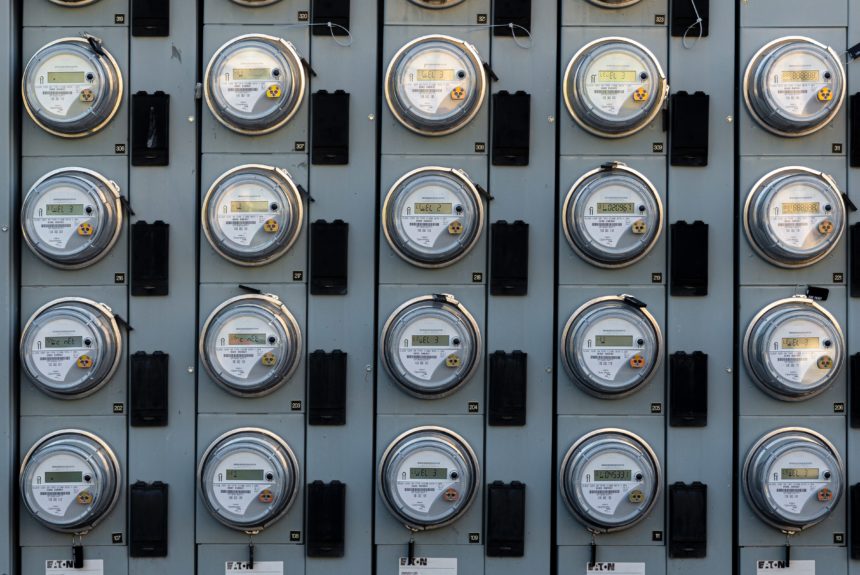Last month, I debated the former deputy head of the England and Wales Green Party, Shahrar Ali, at the University of Sussex. During the debate, Mr. Ali endorsed the enforcement of individual carbon credit caps, using an app to track and limit spending according to a personal emissions limit. Citizens would be unable to sell or trade carbon credit, meaning they could be barred from buying goods governments deem non-essential until their monthly allowance renews. The idea is already being developed by Mastercard and the World Economic Forum, in the form of a credit card which caps consumers’ purchases according to their carbon footprint. But these authoritarian measures are being implemented for an energy shortage engineered by impractical ideological energy policies. Not only is this crisis unavoidable, but these prospective restrictions are also unethical and will be ineffective.
>>>READ: Unleash the Private Sector to Improve Energy Consumption Efficiency
The UK government has been promoting Smart Meter adoption with television adverts featuring Albert Einstein. Fitting Smart Meters in every household will create a digital infrastructure network tracking everyone’s daily energy consumption. Theoretically, this could enable greater consumer consciousness: with households making more responsible energy use decisions regarding when to charge their cars, run household appliances, dim or turn off lights, etc. However, the government have also stated their intention to use that data to create legislation to save a projected £16 billion ($21 billion) annually on meeting net-zero by 2050 commitments.
It is indisputable that energy-saving devices decrease carbon emissions and energy costs. These trends are vital when confronted by a £693 ($943) average household energy bill increase from April. But when these metrics become predicates for government restrictions and rationing of energy consumption, rather than private energy-saving innovation, then policies regress to eco-authoritarianism.
The government is exploring the ability to remotely deactivate household electric car charging ports during peak usage hours, to ration energy. “Smart chargers” would connect to smart meters, and deactivate automatically according to pre-sets limiting functionality between 8 – 11 a.m. and 4 – 10 p.m. This would constitute a travel lockdown — with the government restricting people’s free movement according to consumption targets.
Last September, Green Party leader Baroness Natalie Bennett proposed electric cars be used as domestic backup generators. Now, the National Grid and supplier Octopus Energy are piloting a scheme which drains the batteries of electric cars during generation troughs. This expansion of the energy buyback pilot, allowing electric car owners to sell surplus power back to the grid, could become an involuntary confiscation scheme to paper over power generation problems.
But while both proposals are tyrannical, the latter is also impractical.
According to modelling using the Nissan Leaf in my research paper for The Adam Smith Institute, even if all thirty million of the UK’s cars were electric, and 100% of battery capacity were transferred into the Grid, it would only constitute 1500 GWh. This is 9300 GWh below the worst generation trough in 2021. Britain would need at least 75 million cars to last a single trough — with all cars needing recharging the following day to safeguard against another trough. This model also ignores realistic challenges, like the immense stress a rapid transition from combustion engine to electric vehicles would place on the Grid, as well as limitations on battery capacity and production which impede the large-scale manufacturing of electric vehicles. Treating electric cars like driveway back-up generators is an infeasible solution to renewables’ shortcomings.
What is the rationale behind such restrictions?
>>>READ: The True Cost of a Fully Green Grid
In their eagerness to deliver on promises of a fully decarbonised grid, governments worldwide have subsidised renewables to the tune of over $39.5 billion annually. The likes of the Green Party, and their affiliated activist network Extinction Rebellion, have pushed for the abolition of both fossil fuels and nuclear — leaving renewables as our only power source. In a previous piece for C3, I explained how a fully renewables grid had supply-chain limitations, would cost $3.8 trillion, require a decade of global battery capacity, and still fall short of consumer demand by 73.5 percent. An ideological commitment to only renewables necessitates a utilitarian micromanaging of energy consumption by the state for usage to stabilise.
We are having our liberties and livelihoods restricted because of overcommitments on insufficient technologies by governments.
So, what is the way out of this price and consumption control crisis?
Market mechanisms.
Price caps, levies for subsidies, and the nationalization of production caused these problems. Only rolling back state intervention can make energy generation cleaner and cheaper. More mandates and restrictions will produce the unintended consequence of people picking between heating and eating. Consumers should have the choice to use the energy they deem necessary to sustain their lifestyle choices, and pay more or less accordingly.
The artificial restriction of energy consumption involves enforcement costs, with digital infrastructure, new personnel, and strict regulations (prone to outdating) all necessary. Over time, personal carbon credit caps, or car charging time limits, will be subjected to a law of diminishing returns — either being laws incapable of enforcement, or costing lives and livelihoods in their inability to update and expand to meet consumer needs. People will suffer, and the system will be circumvented by those who see it as unjust.
Energy rationing won’t fix generation shortfalls. The human cost will be higher than any subsidy. It’s time government stopped playing favourites with generation methods, and we abandon the notion that we can mandate and micromanage our way to a world worth living in.
Connor Tomlinson is the Policy Director for the British Conservation Alliance and a political commentator for Young Voices UK. He appears regularly in American Spectator and on talkRadio. Follow him on Twitter: @Con_Tomlinson
Author’s views are his own.
The views and opinions expressed are those of the author’s and do not necessarily reflect the official policy or position of C3.
